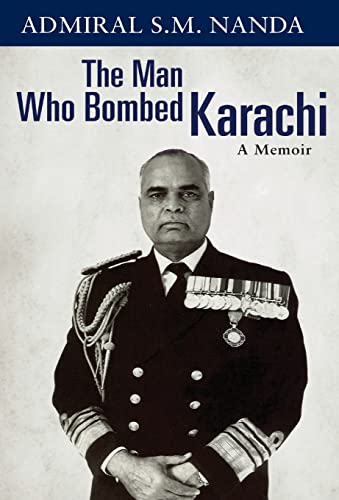The Man Who Bombed Karachi: A Memoir
Admiral Sardarilal Mathradas Nanda (1915-2009) was born in Manora, Karachi, on 10 October 1915. He rose up the ranks of the Indian Navy to attain the top post as the Chief of Naval Staff in March 1970, holding the position till February 1973. After retirement, he served as Chairman and Managing Director of the Shipping Corporation of India. He was awarded the Padma Vibhushan in 1972. Admiral Nanda passed away in New Delhi on 11 May 2009 after a brief illness. He was cremated the next day with full military honours be tting a former chief of the Indian Navy. ... Read more Read less
Admiral S.M. Nanda started his career with the Royal Indian Navy. The post-Independence days posed a challenge for the nation and its defence forces and, as a young officer, he witnessed the fledgling navy grow from strength to strength. The crowning glory of his career, which spanned thirty-two years, came when he was appointed Chief of Naval Staff at a time when tensions with Pakistan were at their peak and the government was looking for a rm hand at the helm. He achieved distinction and honour for the remarkable role he played in the 1971 war for the liberation of Bangladesh, devising tactics to neutralize the Pakistan navy. The main target was the Karachi port, where the bulk of the Pakistan fleet was stationed. In his memoir, Admiral S.M. Nanda focuses on this signi cant event, providing a detailed account of how the Indian Navy carried out the operation. The Man Who Bombed Karachi is the inspiring story of how a childhood fascination for the sea led an outstanding officer to rise to the pinnacle of India's armed forces. It gives a glimpse into life in the Royal Indian Navy, with a dramatic rebellion by Indian sailors against their British superiors, and traces its evolution into an organization that is today a force to reckon with globally. Most of all, it is an insider's authentic account of the inventive naval strategies that led to one of India's biggest victories in war to date. ... Read more Read less











